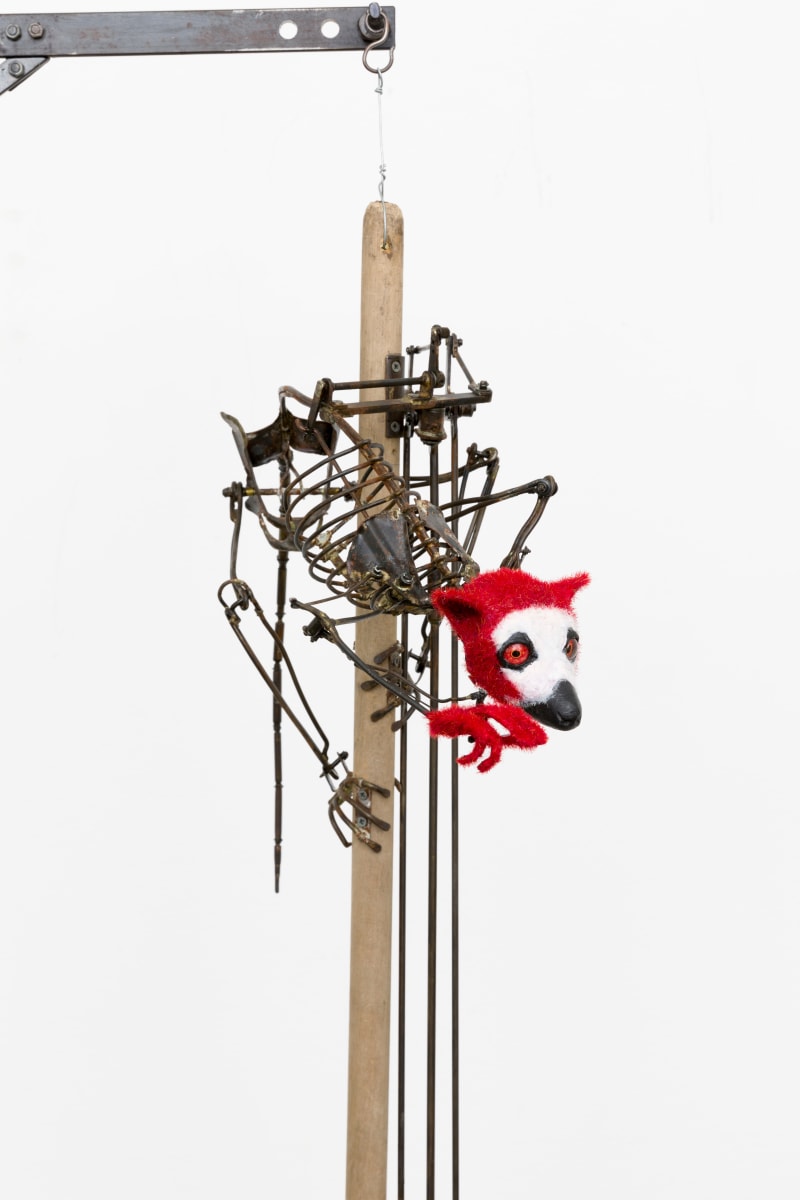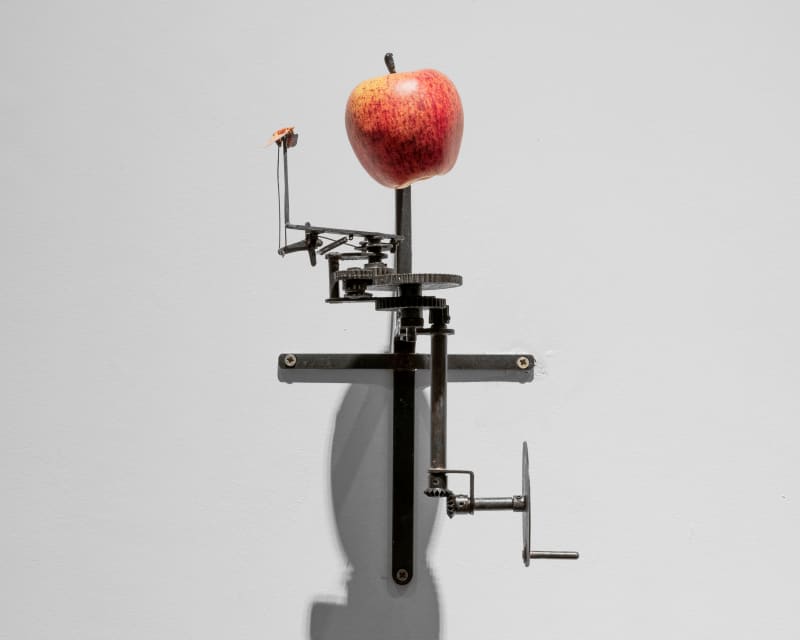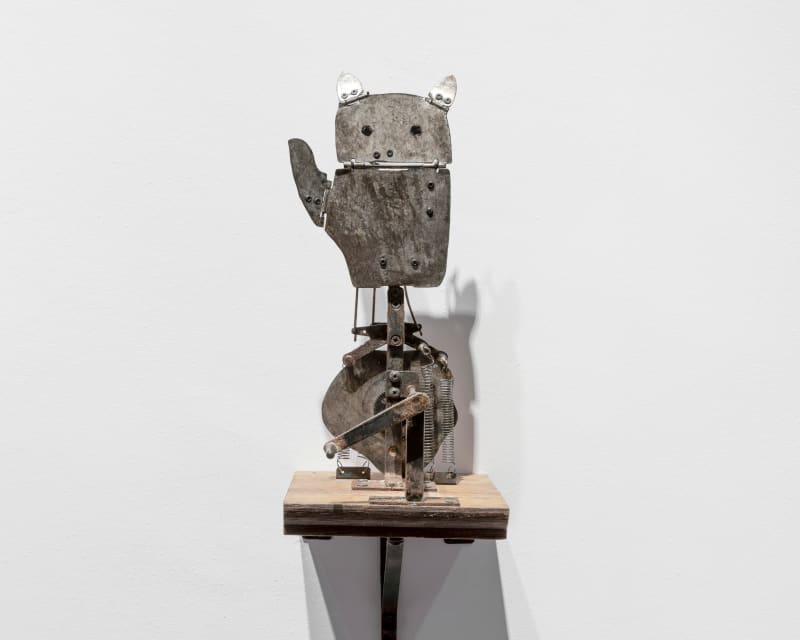Overview
In this exhibition of new zoomorphic works by Tim Lewis, a series of kinetic sculptures, made from repurposed found objects and materials, are reconfigured to suggest uncanny encounters between organic matter and industrial processes.
The title The Forest Visits refers to one of the key works in the exhibition, in which two discarded Christmas trees are suspended and transfigured into an altered hybrid lifeform with the head of an Echidna. Whirring into life in response to the movement of the viewer, the sculpture uses a chime appearing to signal to the viewer with an open and unspecified call to action.
Lewis’s works are often inspired by science fiction, including writers such as Philip K. Dick or Stanislaw Lem, and the works themselves are frequently suggestive of speculative futures. In this exhibition, Lewis also looks to the present landscape, referring to footage from the depths of the ocean in a new work titled Sargasso Sea Floor. In this work, Lewis draws on the current realities of ocean beds strewn with human-generated plastics, while also reflecting the continual resourcefulness and adaptation of the natural world to environmental change.
Lewis’s figures are brought to life by inorganic materials such as laminated resin, discarded coat hangers, rods and wires, and are choreographed to mimic the movements of the human/animal body. A work titled Die Hacke (Translated as ‘The Hoe’) recalls the process of raking and turning over the soil, relating to the human relationship to the earth, and what we make of nature. This work also introduces ideas of miscommunication, in which Lewis describes the gestures of the mechanical creature as representing something lost in translation, as though “plucking information, such as radio signals out of the air.” In Serpent, a large-scale mechanical sculpture of a red snake, Lewis composes the animal’s body out of composite sliding parts, elegantly coming together as a slithering whole before disintegrating again in a continuous loop. The transitory nature of this work reflects what Lewis has described as a “half-dream,” drawing on snippets of information from memory to build imaginative visions of the future.
The title The Forest Visits refers to one of the key works in the exhibition, in which two discarded Christmas trees are suspended and transfigured into an altered hybrid lifeform with the head of an Echidna. Whirring into life in response to the movement of the viewer, the sculpture uses a chime appearing to signal to the viewer with an open and unspecified call to action.
Lewis’s works are often inspired by science fiction, including writers such as Philip K. Dick or Stanislaw Lem, and the works themselves are frequently suggestive of speculative futures. In this exhibition, Lewis also looks to the present landscape, referring to footage from the depths of the ocean in a new work titled Sargasso Sea Floor. In this work, Lewis draws on the current realities of ocean beds strewn with human-generated plastics, while also reflecting the continual resourcefulness and adaptation of the natural world to environmental change.
Lewis’s figures are brought to life by inorganic materials such as laminated resin, discarded coat hangers, rods and wires, and are choreographed to mimic the movements of the human/animal body. A work titled Die Hacke (Translated as ‘The Hoe’) recalls the process of raking and turning over the soil, relating to the human relationship to the earth, and what we make of nature. This work also introduces ideas of miscommunication, in which Lewis describes the gestures of the mechanical creature as representing something lost in translation, as though “plucking information, such as radio signals out of the air.” In Serpent, a large-scale mechanical sculpture of a red snake, Lewis composes the animal’s body out of composite sliding parts, elegantly coming together as a slithering whole before disintegrating again in a continuous loop. The transitory nature of this work reflects what Lewis has described as a “half-dream,” drawing on snippets of information from memory to build imaginative visions of the future.
Play
Pause
Play
Pause
Play
Pause
Play
Pause











